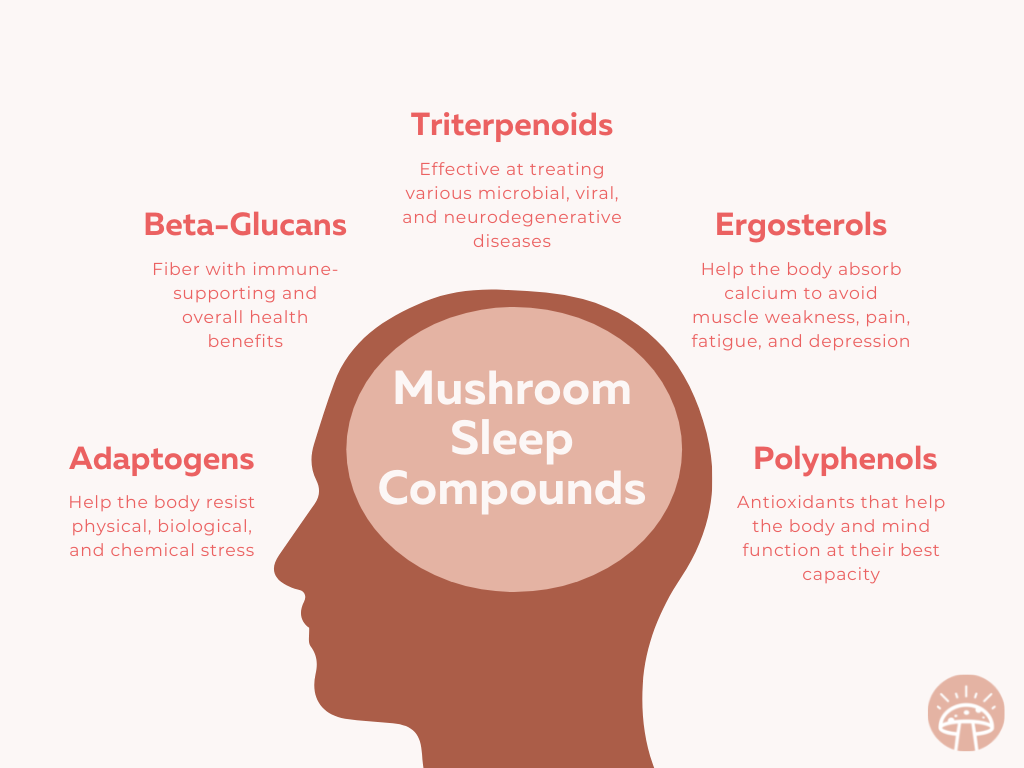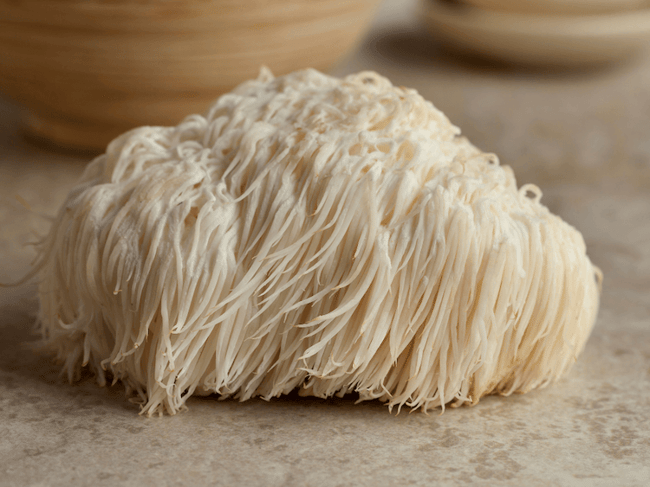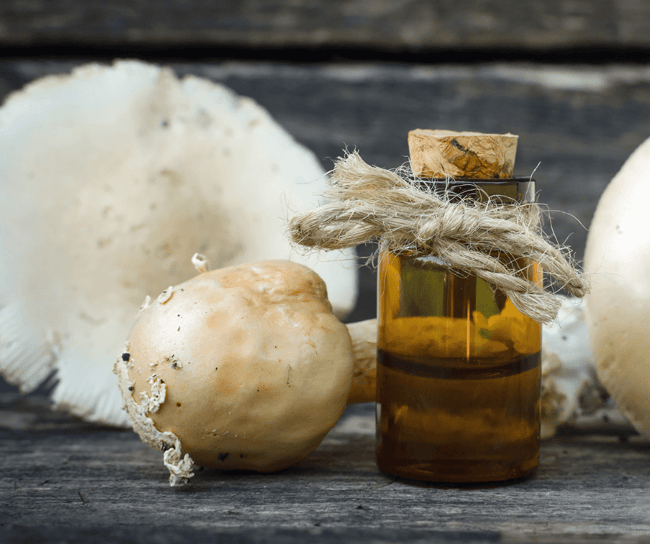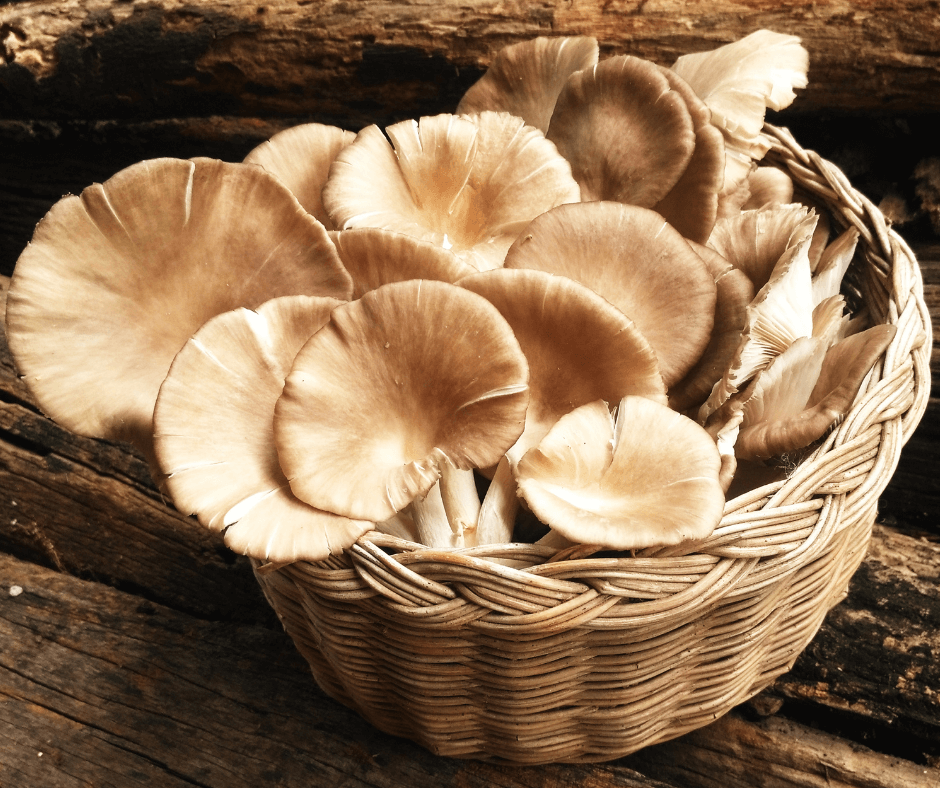The importance of getting good sleep is crucial for healthy human beings. With sleep taking up nearly a third of our lifetime, we need restful shut-eye to be able to function at our highest capacity during the remaining two-thirds of our time.
Sleep is when our body and mind enter repair mode, giving our bodies the time to recalibrate and address any glitches it's encountered from the day prior.
Medicinal mushrooms are an excellent natural supplement to help you achieve better sleep. The most common medicinal mushrooms for improved sleep are reishi, lion’s mane, and cordyceps.
In this article, we’ll review why it’s so hard for us to fall asleep, and how medicinal mushrooms might be able to help.
Understanding America's Sleep Problem
It’s no secret that America has a sleep problem.
The real question is: why?
Over the past 30 years, the lines between home and work have blurred, and digital technology has taken center stage in our society. This shift has made our sleep health suffer due to high levels of blue light exposure and more time being spent in front of screens - for many Americans from the minute their eyes open in the morning to the minute they go to bed at night.
Let’s look at the facts to better understand this issue. Today:
- 25% of US adults say they get poor sleep at least 15 out of 30 days a month
- At least 25 million Americans suffer from sleep apnea - a sleep/breathing condition linked to hypertension, cognitive impairment, heart disease, and stroke
- An estimated 10% of Americans suffer from insomnia
- Drowsy driving accounts for 20% of road accidents
- $100 billion in lost productivity is the estimated net loss of lack of sleep annually
Knowing that better sleep is linked to enhancement of overall physical health, improved mental focus, learning capacity, and creativity, better mood, intelligent decision-making, and proper hormonal balance, Americans are craving something that will help them overcome this problem.
Many people have turned to melatonin, various over the counter drugs, and/or prescribed medications to get the shut-eye they need.
In recent years, understanding the role medicinal mushrooms can play in addressing this problem has become a focal point for many researchers and consumers seeking a more natural way to obtain better sleep. So, the question is, do mushrooms contain nutrients that are beneficial to human sleep?
Understanding Beneficial Sleep Compounds from Mushrooms

Before we dive into the top three medicinal mushrooms that have shown promising research around sleep health, let’s first look at the nutrient makeup of fungi. Medicinal mushrooms contain:
Adaptogens
Mushrooms are often referred to as adaptogenic because of their herbal capacity to heal and/or protect the human body. In other terms, adaptogenic compounds help the body resist physical, biological, and chemical stress, promote normal function during stressful periods, and protect against stress-related damage made to the body and its organs.
How do they do this? Well, adaptogens influence the HPA axis and other key mediators of a human stress response. By doing this, they enhance resistance to stress and promote recovery and homeostasis (stability) in the body.
Beta-Glucans
Beta-glucans are fibers found in the cell walls of various living organisms (e.g., mushrooms). The plants that contain them utilize them as a source of energy to power the organism. What’s unique about beta-glucans is that they are biologically active and have been shown in various studies to play a role in immune-supporting and overall health benefits.
Beta-glucans found in medicinal mushrooms have been shown to be tightly bound with a tough amino-glucose polymer called chitin - a compound that’s also been found in the shells of insects and crustaceans. Humans are not able to easily digest medicinal mushroom beta-glucans hidden beneath the chitin without significant heating before consumption, but once they are broken down, they are shown to fight inflammation and even cancer.
We could go on and on about beta-glucans - and in fact, we have! Visit our blog post for more information.
Triterpenoids
Triterpenoids are organic compounds found in the makeup of mushrooms. Studies have shown that consumption of plants high in triterpenoids are effective at treating various microbial, viral, and neurodegenerative diseases - and, at times, even cancer. How do triterpenoids help with sleep? Well, they are shown to support blood pressure, cholesterol management, blood flow, and oxygen consumption in the cardiac muscle. Since sleep disorders are often linked to cardiovascular problems, triterpenoids could be a big help in this department.
For more information on triterpenoids, check out our blog post.
Ergosterol
Ergosterol is a compound present in fungi. It’s the most abundant steroid in fungal membranes and, through various extraction processes (e.g., ultraviolet lighting), ergosterol is converted to vitamin D2 - a key vitamin for helping the body absorb calcium to avoid muscle weakness, pain, fatigue, and depression.
Polyphenols
Polyphenols are naturally occurring plant organic compounds, characterized by multiples of phenol units, and found in darkly colored plants. Polyphenols include flavonoids, tannic acid, and ellagitannin, and are high in antioxidants that help the body and mind function at its best capacity. Most notably, and most relevant for this conversation, polyphenols are abundant in the fruiting bodies of most mushrooms.
Now, with all of those compounds in mind and a better understanding of the nutrients that are in mushrooms, let’s look at the specific species of mushrooms that are linked to better shut eye.
Top Three Mushrooms for Better Sleep
If you’ve done any prior research on mushrooms that are linked to better sleep, chances are you’ve come across reisi, lion’s mane, and cordyceps as your top contenders. While chaga is also linked to better sleep, most research is focused on these first three mushrooms, so we will focus our attention there today.
Let’s dive in.
1. Reishi

For centuries, Eastern cultures have used reishi mushrooms for their adaptogenic qualities - namely, their ability to balance the body's stress response to the environment around us.
In traditional Chinese medicine, it’s been noted that reishi harmonizes the mind, nourishes the spirit, and opens us to deeper levels of insight and intuition. It’s not a surprise this is a commonly held belief because reishi contains a high level of adaptogens that help with overall health and vitality, stress reduction, addressing fatigue, and improving nightly sleep.
To further back up these claims, let’s look at a study published in the Journal of Ethnopharmacology that looked at reishi dosing for help with sleep. The study was conducted over a three-day period and reishi mushroom use was shown to significantly increase sleep time and non-rapid eye movement sleep at a dose of 80 mg/kg in test subjects.
Another example of reishi helping with sleep was shown in this rat study that yielded results linking reishi dosage to decreased sleep latency and longer sleep time overall. Win win. If you want more information - and trust us, we have mush more - on reishi, start by checking out our blog post on this interesting mushroom species.
All of this helps us come around to reishi earning the nickname of the “the superhero of non-REM sleep.”
Curious about what to look for in a reishi product for sleep and how to take it?
Don’t worry, we have you covered. We recommend looking for reishi products that are made from the full fruiting body and are third-party lab tested. Companies should always provide a Certificate of Authentication (CoA) that shows how the product was made and what extraction process they use - which leads us to, you guessed it… our recommendation on extraction.
When looking for a reishi product for sleep in particular, it’s important to find something that has dual-extraction. This means that the mushroom powder is first soaked in alcohol and then in hot water, each of which extracts different qualities from the mushroom.
When is the best time to take reishi mushrooms?
Well, it’s best to use reishi mushroom supplements right before you go to bed because of this mushroom’s beneficial compounds. Many people mix their reishi mushroom powder into a tea or hot drink to enjoy before bed. We’ll leave that part up to you! It’s recommended to take reishi daily and is safe to do so, but please consider the potential side effects and interactions (speak with a doctor) before you make a drastic change to your routine. Dosage will vary person to person.
For more information on reishi dosage, interactions, and side effects, visit our blog post.
2. Lion's Mane

Lion's mane mushroom gets its name from its furry-white appearance - but many people also say it looks like a white brain. The irony in this is that lion’s mane has been scientifically connected to improved brain health and enhancing cognitive function. Lion’s mane has been used to treat various neurodegenerative diseases like Alzheimer's, Parkinson's, dementia, and stroke.
As we think about lion’s mane and its relation to better sleep, we’re reminded that lion's mane stimulates the growth of neurons (e.g., brain cells) that keep the brain's electrical system functioning correctly. For this reason, many people believe that lion’s mane is good for focus, but, since the ability to sleep well connects to the health of our central nervous system, lion's mane may also be a good mushroom supplement to consider for general sleep health.
For example, scientists looked at the circadian rhythm and the progression of Alzheimer’s disease in mice that took lion’s mane. What they found was that lion's mane may serve as a functional treatment for the prevention and treatment of Alzheimer's and delayed sleep phase syndrome.
Lion’s mane was also utilized in a Japanese undergraduate student study that looked at anxiety and insomnia. The group was given lion’s mane extract, and, over time, generally reported lower levels of anxiety and insomnia, as well as slightly improved sleep.
Overall, it’s been shown that lion’s mane can correct brain-derived neurotrophic factor, thus calming the body so sleep is restful and restorative without making you drowsy the next day.
If you're looking to do a deep dive into lion's mane mushrooms, we've got you covered -- everything from the health benefits, to side effects and interactions, to the best ways to incorporate the mushroom into your diet (we suggest tea and tacos!).
What to look for in a lion’s mane product for sleep
When looking for a lion’s mane product, most people prefer an extract. Similar to reishi, ensure the company you’re buying from is a trusted organization that provides a CoA. When looking at extraction processes, we recommend seeking out a product that is created using hot water extraction. From there, simply blend the powder extract into a hot beverage at night right before bedtime and enjoy your ZzZzZ’s. Dosage will vary by height, weight, and health status.
3. Cordyceps

Last, but certainly not least, we have cordyceps. There are 400 species of cordyceps, most of which are native to Asia and resemble long, finger-like objects with a brown or orangish-brown color. This mushroom has been noted for its potential benefits to better sleep - but many wouldn’t believe that’s true because cordyceps are a quintessential energy-boosting mushroom that increases the flow of oxygenated blood throughout the body. This is why cordyceps are so often utilized by athletes.
However, cordyceps are also shown to help with rest and repair during sleeping hours. Why? Because cordyceps contain an adenosine analog called cordycepin that plays a role in regulating sleep and wakefulness. The effects cordyceps may have on sleep patterns include:
- Increased REM sleep
- Increases in serotonin and melatonin
- Reduced glutamine and acetylcholine levels, causing deeper sleep patterns
- Faster recovery from jet lag/circadian rhythm issues
There's even a best time to take cordyceps -- we discuss that here.
What to look for in a cordyceps product for sleep?
We’re echoing this once more because it’s important: find a trusted company that is clear about its processes for creation and extraction. For cordyceps we recommend a dual extraction product. While we think it’s great to take cordyceps before bed, since it also has energizing properties, it might take some experimentation to find the right timing for cordyceps supplementation and better sleep. Dosage will vary by person.
Consider a balanced blend of medicinal mushrooms
While any singular mushroom listed above may be a good place to start as a natural sleep aid, many suggest a blend of these products may have the best effects. For example, a blend of reishi, lion’s mane, and cordyceps will help cover all your bases by helping with REM sleep, addressing insomnia, general sleep latency, and more. What should you look for in a blended product? We have a few recommendations.

What to look for in a blended mushroom product for sleep
Most blended mushroom supplements that are labeled as sleep aids will include reishi, turkey tail, lion’s mane, maitake, and potentially cordyceps. We recommend looking for a product that is made from fruiting bodies, is third-party lab tested, and comes from a company that produces a CoA (as mentioned before).
Lastly, the product should always be an extract - note how it’s labeled on the product as you’re browsing in your local health food store or online.
If researching your own mushroom supplements seems overwhelming, don't worry -- we did the hard work for you! Read more here.
A final note about adding medicinal mushrooms to your sleep routine
As you start to consider which mushroom (or which blend of medicinal mushrooms) is best for you, it’s important to first look at your bedtime routine. For example, are you getting into bed at relatively the same time every night? Are you looking at your phone before you go to bed? Are you drinking caffeine before you hit the hay? All of these pieces of the puzzle are important.
Once you have an established routine, you can think about adding mushroom supplements into your nighttime habits. Here’s hoping your rest is mush more, well…restful! Sweet dreams.
Curious to learn more about the health benefits of medicinal mushrooms? Check out these blogs on similar topics:
- Gut health
- Heart health
- Brain health & cognitive function
- Sexual health
- Improved immunity
- Cancer support
If you've got a specific health topic you'd like us to cover in the future, let us know!





.png)
